Ogutcu in an interview with MNA
TEHRAN, (MNA) – Referring to US sanctions amid Covid-19, a former Turkish diplomat said, "destabilizing Iran’s economy and political system is an integral part of the grand US strategy for the Middle East" regardless of who wins the election.
Due to the US position in the economic, political, security, and military spheres, the country has taken many unilateral steps in the international arena in recent decades, which has led to the formation of a trend in its foreign and economic policy.
Although this unilateral foreign and economic policy emerged with the post-World War II, ups and downs during the presidency of most US presidents, it seems to have become even more during Donald Trump's term.
Trump's unilateralist policies not only created tensions between the country and other world powers such as Russia and China, but have even raised tensions between the United States and its European and NATO allies.
2020 US Presidential Election has challenged Donald Trump and Joe Biden, two Republican and Democratic candidates in the field of foreign policy issues, including the US policy towards the West Asia (Middle East), the ways to fight against coronavirus, the immigration issues, and etc.
Due to its socio-economic consequences, coronavirus has become one of the most influential factors in determining the outcome of the US election. Donald Trump, who has repeatedly downplayed the coronavirus threat, tested positive for coronavirus. Now this question raises what positive or negative consequences Trump's positive test for coronavirus have on his campaign, and whether it changes the minds of those who have not yet decided to vote which candidate. Now that the first term of Trump's presidency is coming to an end, many in the world are waiting for the results of the US presidential election.
On the other hand, the policies of these two candidates towards West Asia is another challenge for the United States. Trump's approach to West Asia issues is defined by his strong support for the Israel regime, Saudi Arabia, Egypt, and his aggressive approach to Iran. Biden was deeply involved in changing US diplomacy and military policy in West Asia during Obama. He will act based on his experiences in dealing with issues in Iraq, Israel regime, Syria, Iran and other West Asian countries.
To know more about the US Presidential Election and the effects of its result on US policies, we reached out to Mehmet Ogutcu former Turkish diplomat and Chairman of the Global Resources Partnership.
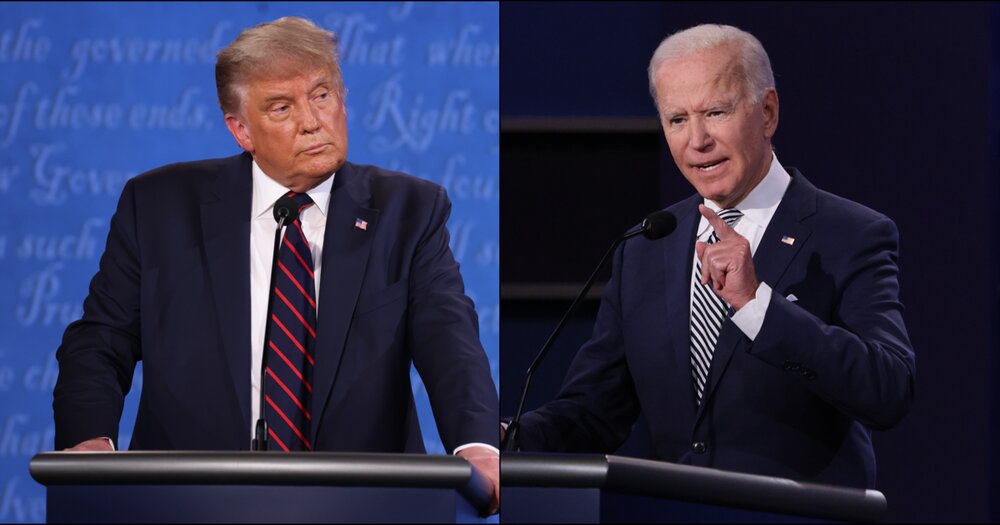
Here is the full text of the interview:
Given the experience of the last US election, the influence of the Electoral college in public opinion has always been a serious challenge to US democracy. What is the role of the Electoral college in the US Presidential election for electing the President in your opinion?
The US has a very unusual presidential election system - the president of the world’s superpower is not chosen directly by the voters. It requires to be an expert to decipher it. At the end of the process, we may face a situation in which the candidate with the most votes from the public may not be the winner. Americans have used the Electoral College to choose their presidents ever since 1789, but it still is a puzzle to many.
US has a very unusual presidential election system, the president of the world’s superpower is not chosen directly by the votersThere are 538 electors who will choose the president and vice-president. The electoral college meets every four years, a few weeks after election day, to carry out that task.
Generally, states award all their electoral college votes to whoever won the poll of ordinary voters in the state. For example, if the Republican candidate won 50.1% of the vote in Texas, they would be awarded all of the state's 38 electoral college votes.
This is why presidential candidates target specific "swing states" — states where the vote could go either way — rather than trying to win over as many voters as possible across the country.
What are the cards that Trump and Biden might use in the debates?
Unfortunately, both candidates over 70 years old have great weaknesses and are not at all inspiring American voters and us outside the United States. Trump spent almost the entire TV debate recently interrupting both moderator Chris Wallace and his Democratic rival Biden, who seems to be winning in public polling, both nationally and in the swing states.
Trump needs to make up ground with senior citizens, women and college-educated white voters. Biden automatically wins by not losingBut the election is far from over, and Trump’s strength among white voters without college degrees means he will have a chance to triumph again in the Electoral College without winning the popular vote.
The president needs to make up ground with senior citizens, women and college-educated white voters, and almost nothing suggests he is doing so. Biden automatically wins by not losing. That’s not to say Biden’s performance is perfect. He lacks energy and vision. His female and colored running mate is a valuable plus.
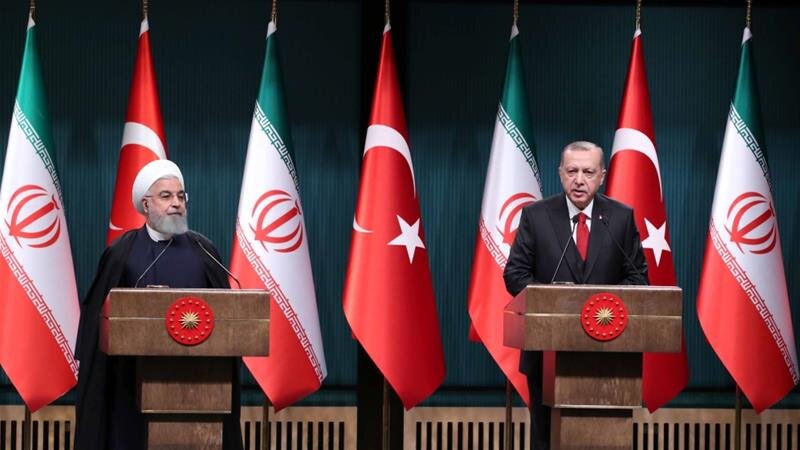
What effect will the election of either of these two people (Biden or Trump) as President of the United States have on the region and especially their policy towards Iran and Turkey?
The US intention to pull out of the region is not going to happen. While Asia pivoting is still on the cards, the US will have to keep considerable presence in the region in order not to loose regional supremacy in favor of China and Russia, which are increasingly assertive in the Middle East.
There is no likelihood of Trump's administration reversing its policy vis-a-vis IranLet’s be clear: There is no likelihood of Trump's administration reversing its policy vis-a-vis Iran. The Americans appear determined to go ally the way until their Iranian policy will bear fruits, namely further destabilizing Iran’s economy and political system as an integral part of the grand US strategy for the Middle East.
Most recently, Trump approved new sweeping sanctions on Iran's banking sector, taking a major new step to cripple the arch-rival's economy weeks ahead of US elections. This is on top of other heavy sanctions already imposed. The Treasury Department designated 18 major Iranian banks, a move that could largely cut off the 80 million people from the world's financial system just as it tries to cope with the Middle East's worst COVID-19 outbreak.
The Treasury Department did not list specific accusations against most of the banks, instead declaring broadly that the entire Iranian financial sector may be used to support the government's contested weapons programs and regional efforts.
If Tehran returns to compliance with the deal, Biden promised to re-enter the agreement and support from its allies to strengthen and extend it Biden's latest statements on Iran reveal that the post-Cold War trend of American presidents doing the exact opposite of their predecessors on foreign policy, and seeking political dividends for doing so, might continue if the Democrat is elected.
The historic Iran nuclear deal, negotiated by the Obama-Biden administration alongside other allies and world powers, was cast aside, prompting Iran to restart its nuclear program. If Tehran returns to compliance with the deal, President Biden promised to re-enter the agreement, using hard-nosed diplomacy and support from its allies to strengthen and extend it.
Trump’s Turkey policy will likely remain unchanged — lots of tensions exist on many economic, military, financial and foreign policy fronts, but they can still be managed right now thanks to the personal chemistry developed between him and President Erdogan.
Trump’s Turkey policy will likely remain unchanged but it looks as though Turkey will find a tough president in White House if Biden is electedYet, Biden says he is “very concerned” about human rights, democratic freedoms, Turkey’s approach to Kurds, his partial military cooperation with Russia, and access to US airfields in the country. He also called on Erdogan to reverse decision on Hagia Sophia, now a mosque. Joe Biden also called on Turkey to stay out of the Azerbaijan-Armenia conflict, saying that the Trump administration should seek to de-escalate the renewed fighting in the Caucasus. It looks as though Turkey will find a tough president in White House if Biden is elected on 3 November.
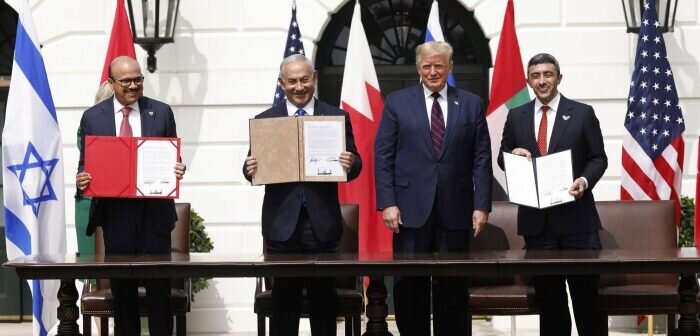
Trump uses the process of normalization of Arab countries' relations with the Israeli regime as a trump card in the election. What do you think will happen to this normalization process if he loses the election?
Foreign policy has not been a significant issue in the presidential campaign so far, but Trump is eager to promote his recent Middle East peacemaking successes in contrast to the lack of progress on that front during Biden’s eight years as Obama’s vice president.
It was not without a reason that Trump’s first trip as President was to Saudi Arabia in May 2017. His son-in-law and other confidants paved the ground already under a specific roadmap. He said there “the problems of the Middle East could only be solved when people of all faiths come together to fight Islamic extremism and pursue economic opportunity for people of all faiths”.
The Trumpian narrative that everything in the Middle East is settling down has some validity. After 49 years, Israel regime, the United Arab Emirates and Bahrain fully normalized diplomatic relations, beginning co-operation on a broad range of areas, including tourism, education, healthcare, trade, and security.
One amazing phenomenon is that Turkey and Iran, both non-Arab states, have now been cast as “enemies” to the Arab world while Israel regime, once an arch-enemy, has been positioned as a “friend” to the Sunni worldI have no doubt that this step will be soon followed by a breakthrough agreement with Saudi Arabia as well just before the presidential elections to deliver a much needed foreign policy success to Trump. Nevertheless, I am not sure whether the Israeli-Arab rapprochement now in the pipeline will be a lasting one or can easily be derailed.
One amazing phenomenon is that Turkey and Iran, both non-Arab states, have now been cast as “enemies” to the Arab world while Israel regime, once an arch-enemy, has been positioned as a “friend” to the sunni world.
There are indications that this process in action can hardly be reversed in Washington if Biden will walk into White House. Biden said he wants to build on a push by the Trump administration to get all Arab countries to normalize their relations with Israel regime. A Biden-Harris administration is likely to build on these steps, challenge other nations to keep pace.
Biden adds a caveat, though, saying his administration would use the momentum to “leverage these growing ties into progress toward a two-state solution and a more stable, peaceful region.”
Trump’s approach to these agreements has made scant mention of the Palestinians, and put zero emphasis on the idea of a two-state solution. Biden’s desire to make a two-state solution a goal of the normalization push will no doubt complicate things, not least because the Israeli right wing would fight it.
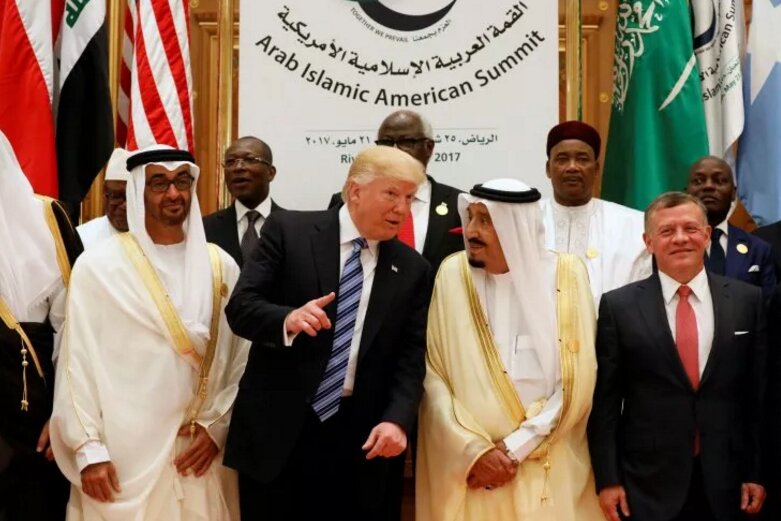
Arab countries have linked their security and political stability to the United States, but during Trump's presidency, their security ties became more tied to Trump himself. What will be the fate of some of these small Arab countries if Trump loses or wins the election?
Biden’s foreign policy would look and feel a lot different than Trump’s. The former vice president speaks often about restoring alliances, promoting human rights and standing up to dictators — themes we do not often hear from Trump. In his convention speech, Biden vowed to “work in common purpose for a more secure, peaceful, and prosperous world.”
Understandably, Biden tends to say less about the Trump policies he would keep. His campaign would reveal only that his “focus is going to be on rebuilding America’s standing in the world and undoing the incredible damage Donald Trump has wreaked.”
More recently, he has called Chinese leader Xi Jinping a “thug,” accused China’s leaders of committing "genocide" against Uighur Muslims and pledged to rally countries to hold China accountable for its economic“cheating.”
Trump is known for using sticks more than carrots in his interactions with other countries. Sanctions and tariffs, which do not necessarily require congressional action, are among the president’s favorite sticks. He has relied on both to unusual degrees to pursue his agenda on everything from trade to the imprisonment of Americans overseas. We should expect Biden to keep many of these penalties in place.
If Trump looses the election, the Persian Gulf monarchies will not be pushed away but will not have the same degree of alliance with the USTrump’s tariffs on China would give Biden some leverage over Beijing, and he has hinted he might keep at least some during the initial months of his presidency. Although Biden has described Trump’s use of tariffs as “shortsighted,” he has also asserted: “I will use tariffs when they are needed, but the difference between me and Trump is that I will have a strategy to use those tariffs to win, not just to fake toughness.”
If Trump loses the election, the Persian Gulf monarchies will not be pushed away but will not have the same degree of alliance with the US. There will be normal state-to-state relations with some emphasis on democracy and human rights.
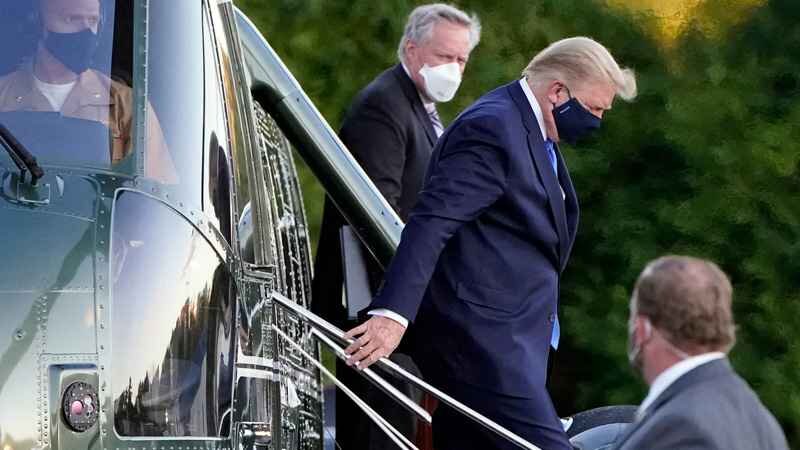
Will Trump's positive coronavirus test affect election results?
The coronavirus has infected more than 7.2 million Americans, killing over 200,000 of them. A week after Trump told Americans not to worry about COVID-19 because "it affects virtually nobody" except the elderly and those with heart conditions, the president, aged 74 and in a high-risk group himself, has tested positive for the virus.
The recurring message from the president, that the nation is "rounding the turn" in its handling of the virus, has been undermined by his own illness. The spread of the novel coronavirus is shaping up as a test of Trump’s core pitch to voters: that they are better off than they were when he took office.
Economic ramifications of coronavirus are increasingly likely to weigh heavily on Trump’s re-election chances and quite possibly could cost him re-electionSharp drops in the stock market, school and office closures, crashing oil prices and widespread disruptions to other major industries have some Trump supporters concerned that the virus is triggering a new financial crisis that could hurt Trump’s bid for a second term more than any political test he has faced so far.
The economic ramifications of the coronavirus are increasingly likely to weigh heavily on Trump’s re-election chances and quite possibly could cost him re-election.
However, let’s not overlook the fact that, during times of national turmoil, the American public tends to rally in support of the president.
Mehmet Ogutcu is Chairman of the London Energy Club and CEO for the Global Resources Partnership. He was a former Turkish diplomat, advisor to the Prime Minister, a senior executive of International Energy Agency, OECD and British Gas.
Interview by Zahra Mirzafarjouyan


No comments:
Post a Comment